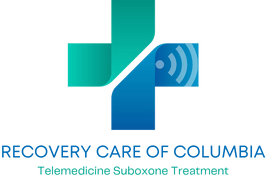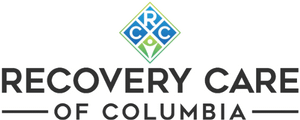Columbia Suboxone Clinic Blog
How to Plan an Intervention for an Opioid Addict
Planning an intervention for someone addicted to opioids is one of the most courageous and caring actions you can take. It requires empathy, preparation, and patience. If you’re reading this, it likely means someone you care about is trapped in the cycle of opioid use—and you’re looking for a way to help without judgment or force.
This guide walks you through how to plan and carry out an effective opioid addiction intervention, offering both practical steps and emotional insight for this sensitive process.
💡 What Is an Intervention?
An intervention is a carefully planned conversation designed to help someone recognize the impact of their addiction and motivate them to accept treatment. It’s not about confrontation—it’s about compassion, clarity, and offering a clear path forward.
🔑 Before the Intervention: Lay the Groundwork
1. Seek Professional Support
Start by speaking with an addiction counselor, licensed therapist, or professional interventionist. They can:
-
Help you design a strategy tailored to your loved one
-
Prepare you for possible emotional responses
-
Moderate the intervention if needed
2. Build the Right Team
Choose people who:
-
Have a close, positive relationship with the individual
-
Can speak from a place of love, not blame
-
Are calm under stress
Avoid inviting anyone who may get angry, guilt-trip, or escalate tension.
3. Get Educated About Addiction
Understanding how opioid addiction works is critical. Learn about:
-
Opioids like fentanyl, Percocet, heroin, and OxyContin
-
The emotional and physical dependency involved
-
Withdrawal symptoms and Suboxone treatment options
Addiction Education Resources
- National Institute on Drug Abuse
- DEA.gov – Opioid addiction-related articles
- Substance Abuse and Mental Health Services Administration (SAMHSA)
- Centers for Disease Control and Prevention | CDC.gov
4. Choose the Right Setting
Pick a private, neutral location where everyone feels safe. Schedule it for a time of day when the person is likely to be sober or experiencing withdrawal—as painful as that sounds, this is often when people are most open to change.
📜 Prepare What You’ll Say
Each person involved should prepare a short, heartfelt statement explaining how the addiction has affected them. Focus on:
-
“I” statements (e.g., “I’m scared for your safety”)
-
Specific examples of changed behavior
-
Hope for the future, not shame for the past
Avoid:
-
Lecturing or moralizing
-
Raising your voice
-
Bringing up unrelated issues
Keep it personal, honest, and filled with love.
🧭 Research and Present Treatment Options
Your loved one may say, “Okay… now what?” Be ready with answers.
Suggested Treatment Paths:
Many people with opioid addiction don’t know that Suboxone treatment can begin the same day, from the comfort of their home.
💬 During the Intervention: Love First, Solutions Second
1. Open With Love
Start by affirming your care for them. Make it clear you are coming from a place of concern, not punishment.
“We’re here because we love you—and we want you to live.”
2. Share Your Stories
Each person should read their statement without interruption. Stay calm, even if emotions run high.
3. Offer Clear Next Steps
Present the researched treatment options and offer to:
-
Drive them to the first appointment
-
Help with registration or childcare
-
Stay with them during the early days of recovery
4. Listen Without Judgment
Allow your loved one to respond. You may hear denial, anger, or silence—and that’s okay. The goal isn’t to win an argument. It’s to plant a seed.
🕊️ After the Intervention: Support Them – Without Control
1. Continue the Conversation
Even if they don’t say yes right away, your words will stay with them. Keep communication open.
2. Be Patient
Recovery is not instant. For many, it takes multiple touchpoints to finally say yes.
3. Take Care of Yourself
Supporting someone with addiction is emotionally draining. Make time for your own:
-
Mental health
-
Sleep
-
Boundaries
Consider joining Al-Anon or other family support groups.
🤝 Group Recovery Is a Lifeline
Recovery isn’t a solo mission. Group recovery offers:
-
Accountability
-
Encouragement
-
A place to be heard
Encourage your loved one to attend NA, AA, or Celebrate Recovery. Visit our group recovery resources page for more guidance.
📌 Final Thoughts: Planning an Intervention Is an Act of Love
Planning an opioid addiction intervention takes courage, empathy, and structure. It may not work the first time—but it plants a powerful seed.
Every person struggling with addiction deserves a chance at a better life. By showing up with compassion and actionable solutions, you may be the lifeline they didn’t know they needed.
🙌 Ready to Help Someone You Love?
Whether they’re ready now or not, Suboxone treatment can begin the same day, without needing to visit a clinic.
👉 Register with TennCare Medicaid
👉 Register with commercial insurance
👉 Register as a self-pay patient
Your presence could save their life. Start the conversation today.



